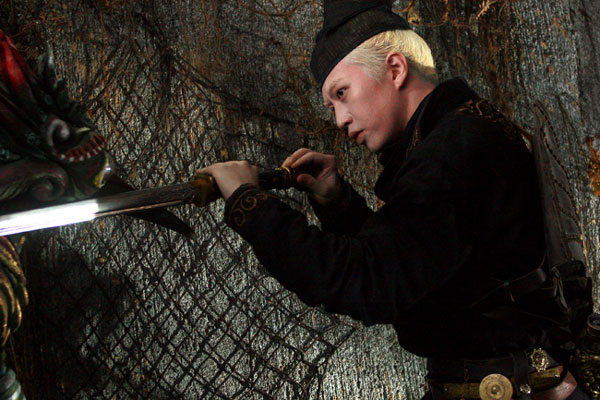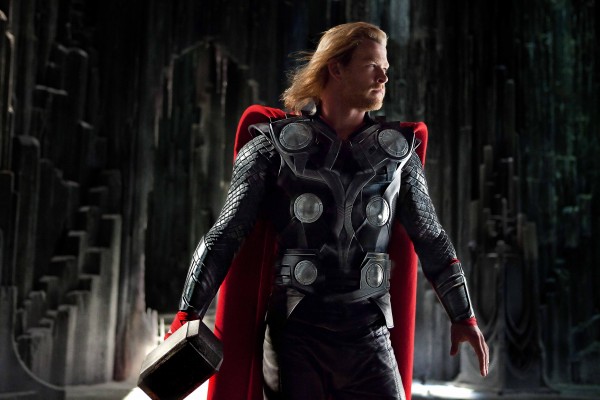Magical Mystery Tour, by David Bax
The great thing and the potentially troubling thing about genre films is that we know what to expect when we watch them. A lesser filmmaker will simply deliver on those expectations without a point of view or a real investment. The best genre filmmakers, though, will use our assumptions against us or utilize them as a delivery device for deeper ideas about people and the world. Tsui Hark is one of the good ones, never using conventions as a crutch but also never straying too far from the things that make these genres enjoyable.
Enjoyable is definitely the word to use when describing Tsui’s new film, Detective Dee and the Mystery of the Phantom Flame. Venerable Hong Kong actor Andy Lau plays the titular investigator, who has, at the film’s start, been imprisoned for eight years on charges of treason against the Empress-to-be, Wu Zetian. When members of Wu’s court start dying mysteriously in the weeks leading up to her coronation, Dee is released to look into the possible murders.
Tsui presents a visually sumptuous film filled with gorgeous period details in the lush production design and the meticulous costuming. He also lives up to his reputation as a reliable hand with action sequences. This is, after all, the man who directed Once upon a Time in China. This movie is not just filled with exciting fight choreography but also showcases Tsui’s Spielberg-ian flair for inventive set-pieces. A fight is conducted while Dee clings to the underside of a galloping horse. Another takes place on a 690 AD version of an elevator whose ropes have been cut as it plummets toward the ground.
The only slight misstep in the visual landscape is efficacy of the visual effects. For a movie with a clear abundance of resources, the CG is disappointingly cheap-looking. This is a particular problem given the nature of those mysterious deaths mentioned above. They come in the form of spontaneous combustion (the phantom flame of the title) and the film features a number of them. Fortunately, as things progressed and the story became more and more involving, I found myself caring less.
Detective Dee carries on the tradition of magical realism that makes martial arts films so enchanting to watch, even as it makes them occasionally confusing to Westerners. As usual, characters portray slightly superhuman abilities when in physical combat. Meanwhile, the phantom flame itself suggests medieval alchemy come true.
The balance of realism and magic is echoed in the performances. Not only Lau but Li Bingbing, Deng Chao and the always great Tony Leung are all possessed of a thorough commitment to the characters and their fears and desires while knowing exactly when and exactly how much to ham it up when called for. When the performances and tone match up like that, it’s certainly not incorrect to give credit to the actors but the job of handling that consistency in all aspects falls ultimately to the director. Once again, Tsui has proven himself equal to the task.
Underneath all this fun runs a subtle allegory (subtle by comparison, at least). Detective Dee is not only the action hero and the solver of puzzles. He is also a surrogate for the will of the common man. In his scenes with Empress Wu, there is a persistent commentary on the symbiotic relationship between leaders and the people they lead. For the best results, the film suggests, both parties should be accountable to each other.
In these last days of warm weather, Detective Dee and the Mystery of the Phantom Flame might be one of the best ways to spend two hours indoors on a hot day. An exhilarating and thrilling film that’s wonderful to look at with a surprisingly nuanced political stance, it’s nothing less than the standard we would all hold big summer movies to in a perfect world.






























